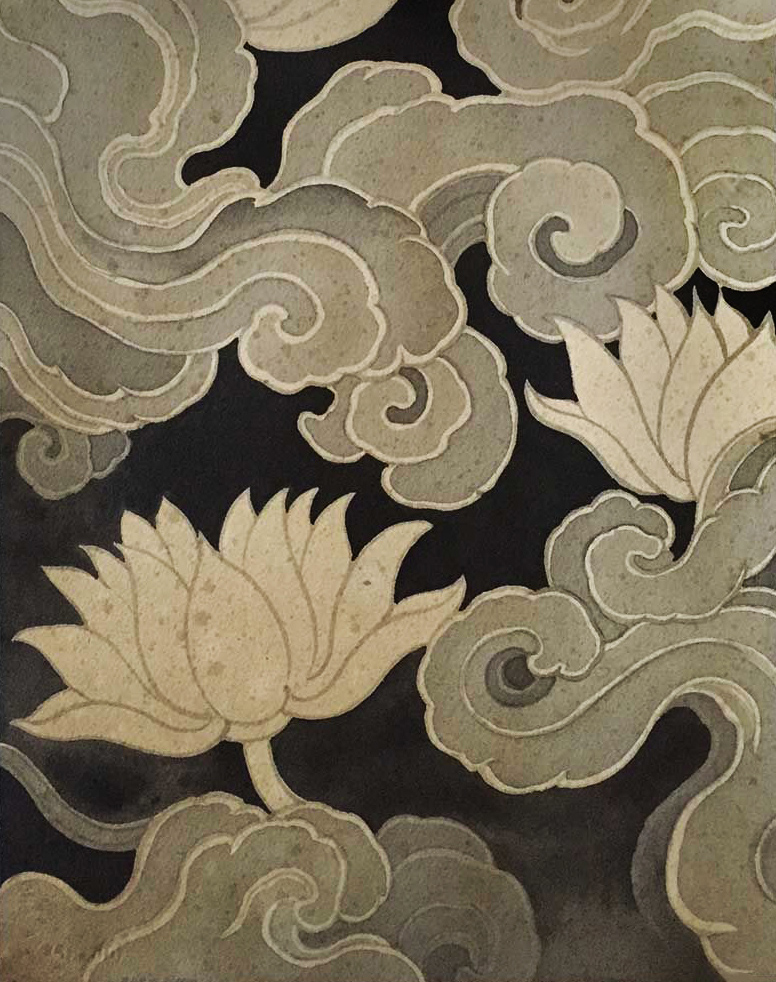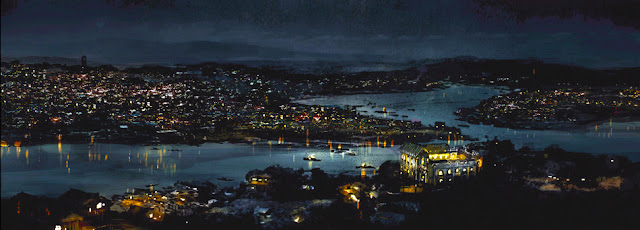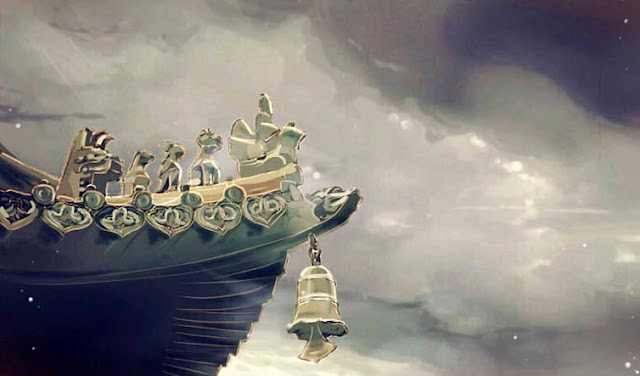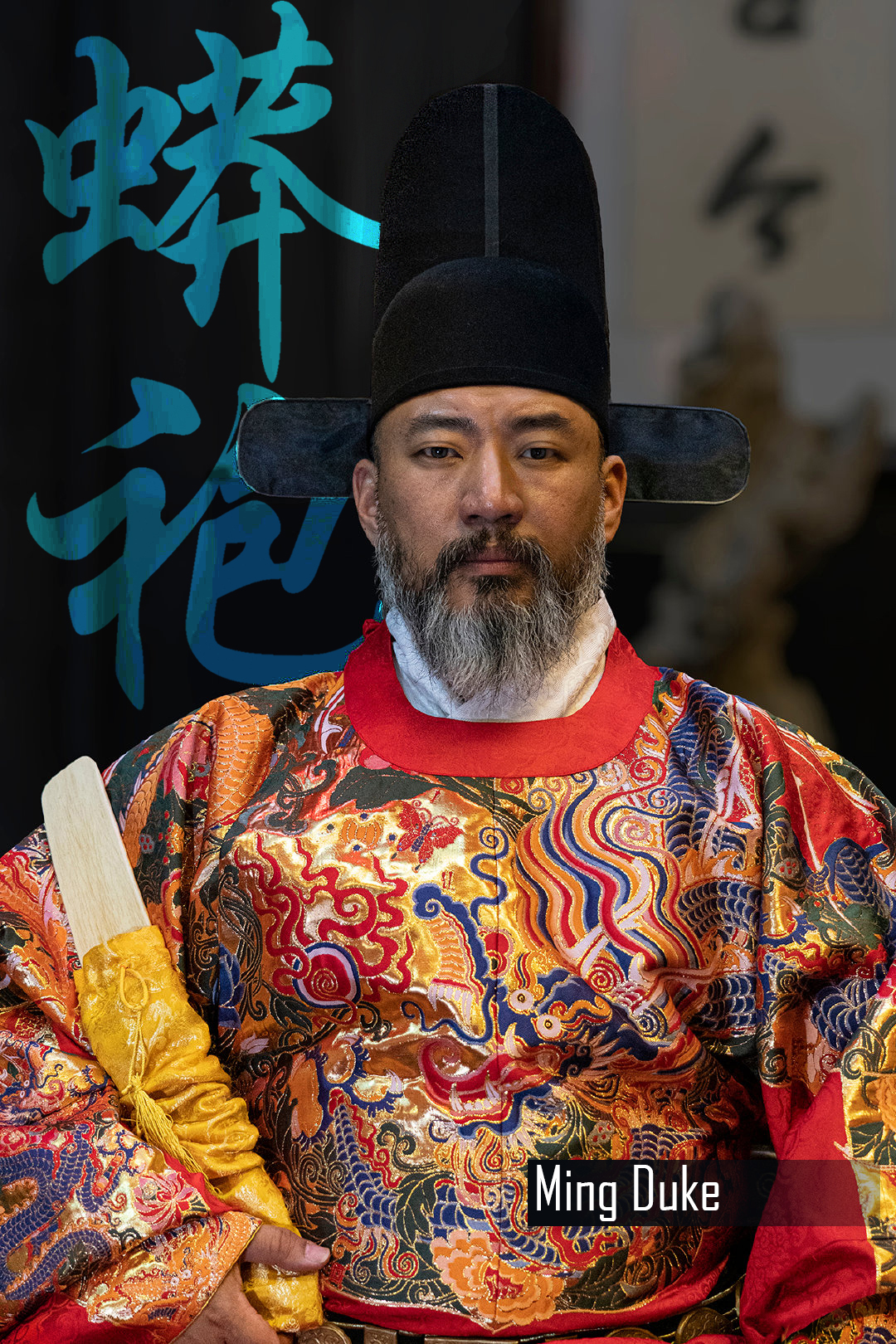A Plague Tale from China: Part 1. Father of the N95 Masks. 伍连德
A month ago, even during the bad days, there was only 1 death per day. A month later, it was 100 per day. The corpses of loved ones, of familiar faces began to be piled in the streets. By Christmas eve, no one dared to come out of their houses. The Lunar New Year is coming, and already the whole northeast of China was locked down. But even time and ill-fortunes conspires against the north.
The man that the government said would save them was a stranger. Worse, he was a Chinese who cannot even speak Chinese, merely a boy molded by the west. Against them all, over their heads; like the Sword of Damocles, the time that could be used to save themselves dwindles.
For if this disease is not stopped before millions of workers board the trains at the five points of northern China, the world would be at the mercy of Death's killing scythe. Each day the mystery remained unsolved was another milestone of death, and each tomorrow would be tallied in the death of many others.

The year was 1910, and the deliverer from this near apocalypse would be none other than the man who pioneered the N95 masks.
1910 French Edition of Le Petit Journal, "The Manchurian Plague"
A KILLER AMONG THE LIVING
Music: House of Spirits
It began like a horror tale.
On the night of November 7th, 1910, a servant's shrill scream pierced the calm in northeastern China. It came from a traveler's lodge in Fujia Dian 傅家甸, a district right outside the Russian- built city of Harbin. Already it was late winter, and temperature in the frigid northwestern China had plummeted to its renowned, brutal coldness. Nearly all of the townsfolk had retired back to the warmth of their homes, all of the shutters were closed. There was not a soul on the windy streets. But what the servant discovered with his lantern light would send anyone to the brink of a metal breakdown. For upon the desks of one of the inn's tables were 2 corpses.
The lodge had been a small workshop and was recently converted into an inn. Because of the seriousness of such a discovery, the inn keeper immediately reported the case to the local magistrate.
An alarm was raised, and it was soon revealed that the 2 dead men were trappers: Marmot fur traders who hunted, cleaned, and traded with pelts. At this time, furrier trappers were a common profession in the region, and was practiced by both the Chinese of Qing dynasty and the Russians in the towns near Harbin. Many such traders frequented these well- traveled inns and they were an important fixture of the local economy.
In fact, these 2 men were here precisely because they came to celebrate the end of a successful year. What was strange was that the deceased men still looked very healthy. Both were stocky and very muscular, it simply seemed that both suddenly topped over mid- celebration with still- ruddy complexions. The townspeople quickly notified the local deputy Yu Si Xing 于驷兴.
The fact that such life-long merchants commonly frequented whore houses and lived together in ramshackled shacks also did not do them any favors in the local's eyes. It' entirely possible that their rough and violent life somehow caught up with them.
Music: Horrors of the Jade Citadel
But that was not the end of it, before the case was even fully documented, 4 more guests in the lodge died. Even the Innkeeper and several other servants sharing the yard all began to show similar symptoms, which is- they would all succumb to a burning fever, then they would cough violently until they coughed up blood and exhibit a purplish discoloration of the skin. Death soon followed within a few days. With these observations, all of the local government became extremely alarmed at the scope of what was unmistakably a plague.
AN EXPLOSION: DEATH SEEDING DEATH
Artwork by Chris Reed Tattoo
That same week, a panicked Yu Si Xing- dispatched an urgent petition to the imperial court in Beijing. In merely one week, many within Yu Si Xing's town of Fujia Dian was infected, and the town's people's suspicions began to race. For even at the best of times, they were aware that they were essentially living right next door with their enemies. The nearby metropolis of Harbin was built by the Russians after all, and filled with all types of foreigners.
Backyards of the Russo- Japanese War. Liaodong Peninsula and Manchuria. Ever since the 1890s, Japan has eyed the region for aggressive expansion, by 1910, Japan had many spies in the region under the disguise of travelling businessmen and tourists.
The Japanese and Russian inhabitants living in the region were immediately suspected of having somehow contributed to the plague. This northeastern region of China was once the ancestral homeland of the Manchu rulers of Qing Dynasty, but in the last years of the 19th century and the beginning of the 20th it was a place of a brutal cycle of wars.
Japan dealt a series of humiliating defeats to China in these lands, and they also crushed the imperial Russian army in the Russo Japanese War. By 1910, tension and hatred was rife in this region. Manchuria in 1910 could be considered a disputed territory at the mercy of 2 very ruthlessly expansionist empires. Although treaties had tempered the ambitions of both Japan and Russia- all of the vexing tensions still linger beneath the surface.
Japan- the meteoric victor of these lands was denied possession of their bloody conquest, Russia, although bruised and humbled, managed to cling on to these lands through a favorable treaty and continued to exploit it as they saw fit. Meanwhile, the native Chinese who had lived here for generations, who felt the humiliation of loosing their ancestral lands to both foreign empires burned with resentment.
Cities like Harbin were created and uplifted by the Russian railroad, in 1910, Harbin was the five points junction of the whole northern China.
To the natives, who regarded the foreigners as nothing more than invading thieves, they would have no problem believing that this present plague was perhaps part of some wicked foreign attempt to soften the region for further invasions. Not totally unfounded consider the later precedent of Japan's Unit- 731 in their attempt to destroy China. After all, many of the local foreigners were exempted from punishment by Chinese laws. Income disparity was high and within the metropolitan areas of Harbin both the Russians and the Japanese were untouchable. That is...Until both the Russians and Japanese started to die en mass as well.
The disease quickly spread through the whole metropolis of Harbin. At the time, Harbin was divided by railways into foreign-dominated and Chinese-dominated districts. Fujia Dian, the center of the Chinese town, became the worst hit area due to its crowded conditions with poor sanitation. Even doctors who had been exposed to some of these patients began to die.
EXASPERATED BEYOND HIS MEANS
Yu Si Xing did what he could as the local magistrate in Fujia Dian, however, because the area was merely one of many smaller districts on the outskirt of Harbin, he only had power over the lap of the railroad and hamlets leading into the city but not the metropolitan itself. Owing to the fact that Harbin was Russian founded city and acted like a Russian colony with its own laws-, when it comes to the matters of the city itself he has no jurisdiction. Because he knew he cannot overstep the city's authority, this is why~ as previously stated, Yu had to appeal directly to the imperial court at Beijing for an expert.
THE NANYANG DOCTOR
On the cold afternoon of December 24th, 1910, Yu was informed that his salvation would arrive by way of train. However, when Deputy Yu greeted the "expert" that the imperial court had dispatched, he became bitterly disappointed. The man- if he could be called that at all, who descended from the train cabin on to the platforms looked little more than a boy.
He was a plain- faced youth of little more than 30, standing at only 5 feet 2 inches, short even by Chinese standards. Swarthy- unremarkable, with a large glasses set on his nose. He was carrying a doctor's bag, and his only travel companion was an assistant even younger than him. The 20 year old with him turned out to be none other than his translator. Yes, his translator. A Chinese doctor, lauded expert, who almost cannot even speak Chinese.

An ethnic Chinese but one who might as well be a foreigner. A Chinese in Qing China without having his hair tied into a pigtail que. Why did the imperial court sent this...stranger of all the people? Are they really out of people to send that they'd send...him?
Music: Sanctuary
A CHINESE OF A WORLD AWAY
The youth- it turned out, was an expat Chinese, born far away in the British Malayan colony of Penang. He belonged to a set of overseas expat Chinese known as the "Nanyang Chinese," the words "Nanyang" 南洋 could literally be translated as "South Oceans." and describes the regions near the South China Sea.
In the wake of the Manchu conquest of China, many Ming dynasty refugees had for centuries established prosperous enclaves of their own along the Malayan peninsula, and in the areas of modern Vietnam, Philippines, Brunei, Malaysia, East Timor, Indonesia and Singapore. By the time the young doctor was born, his city of Penang was controlled by the British empire. True, he was a British molded man, but despite appearances, despite his current host's assumption of him, he had already walked the narrow "Chinese" path long before stepping down on these platforms.
A TITAN OF HIS TIME
Beneath his calm and professional exterior. The young Wu was anything but ordinary, burning with intelligence and stuck with a direct and unreserved tongue. He is defined by his academia and zealous hard work.
His name was Dr. Wu Liande (Pronounced Wu LianDuh) - traditionally spelled as "Wu Lien-teh" in Wade-Giles. But despite his youth, he led a remarkable and rebellious life. At the age of 17, he received the prestigious Queen's Scholarship and in 1896 was rolled at Emmanuel College, Cambridge University, becoming the first Chinese to graduate in medicine from Cambridge. He had a successful career at university, winning virtually all the available prizes and scholarships. An ever voracious student, he then studied bacteriology under Sir Ronald Ross (Nobel Laureate for Physiology in 1902) then proceeded to the Pasteur Institute, Paris, to research on malaria and tetanus. Simply put, he was forged among the utmost titans of his time.
In September 1903 Wu joined the Institute for Medical Research in Kuala Lumpur as the first research student. However, there was no specialist post for him because, at that time, a two-tier medical system in the British colonies mandated that only British nationals could hold the highest positions of fully qualified medical officers or specialists.
After marrying his wife, Wu went into private practice in Penang. However it was after going back to his old home that Wu showed another side of his personality. After seeing the wide spread addiction of opium in the city, especially among the Chinese labor classes, Wu- together with a friend Dr Lim Boon Keng began a fierce campaign against the distribution and use of opium in Malaya.
PASSIONATE SOCIAL REFORMER
On March 1906, he led one of the largest anti- Opium conferences in Ipoh. Unfortunately for Wu, profits generated from opium contributed substantially to colonial revenue in Malaya. Soon, Wu would experience a grave reversal of fortunes. In early 1907, Wu was charged and fined by the Malayan court for possession of an ounce (about 28 g) of opium tincture in his clinic. In Wu's defense, he said the dose was strictly used for medicinal uses and that he had bought it from a female British doctor. Despite his protestations, Wu felt bitterly humiliated by the optics and the charge. It was at this personal nadir, Wu received a formal invitation to serve in China.
A few months earlier, a group of young Chinese sent by the Qing government on an overseas study tour had stopped at Penang after a long lap around Borneo. Wu met one of them, a Cornell University graduate named Alfred Sze, who would later become Qing China's Councillor of Foreign Affairs. And it was through befriending Sze and the friends he made in this tour that Wu was invited to train military doctors for the army in Qing China.
Qing dynasty cadets in German uniforms. By the mid 1900s, many of the Qing soldiers and officers began to adopt western soldier's attires- albeit still preserving their long ques.
In May 1908, Wu sailed with his wife, first to Shanghai, then to Tianjin. There, he was introduced to the Manchu Chief of the Army Services who, greatly impressed by Wu, made him vice director of the Imperial Army College in Tianjin. And although ethnically Chinese, he was treated more like an honored foreign professor. He only spoke English to his students via his translator. And here is where our story returned to the meeting of Yu and Wu at the train platform in 1910.

Music: クロノスの刻みII
After several doctors had died in the activities around Harbin, on 19 December 1910, Alfred Sze- Qing's Councillor of Foreign Affairs contacted his old friend again due to his extensive knowledge of virology and epidemiology. After a 3 day train ride, the young 31 year old Chinese titan, who cannot speak proper Chinese descended unto the frigid platform of northern China. He could not have came at a worse time, for when he arrived in Harbin it was already pandemonium.
The young Dr Wu Liande in Qing uniform with his wife Ruth Shu-chiung Huang.
A month ago, even during the bad days, there was only 1 death per day. By Christmas eve, it was over 100 per day. The whole of northern China was in grave danger. Against them all, over their heads; like the Sword of Damocles, the time that could be used to save themselves dwindles. With the approaching Lunar New Year celebrations, there was a severe risk of the epidemic spreading when individuals from plague-affected areas traveled to their hometowns in different regions. Wu now only have weeks to solve the problem before the plague sweeps across all of China and the rest of the world. Follow his story here in our next chapter.
→ ☯ [PLEASE SUPPORT ME @ PATREON] ☯ ←
Thank you to my Patrons who has contributed $10 and above: You made this happen!
➢ ☯ MK Celahir
➢ ☯ Vincent Ho (FerrumFlos1st)
➢ ☯ BurenErdene Altankhuyag
➢ ☯ Stephen D Rynerson
➢ ☯ Michael Lam
➢ ☯ Peter Hellman
➢ ☯ SunB














































Comments
I am doing okay considering, just writing more articles to keep myself occupied.
I don't have the patience nor an iota of care about whatever off topic random comment you keep rope in. Imagine scrounging hours, even days to research and write an article between busy work days just to have some airhead who don't really spend a second reading article itself and keep talking about subjects that have no relevance to your article what so ever.
I will do it sometime in the future. I will definitely try to make more of those and upload them. Here's hoping that I'll scrounge enough oppurtunities to do it. :)